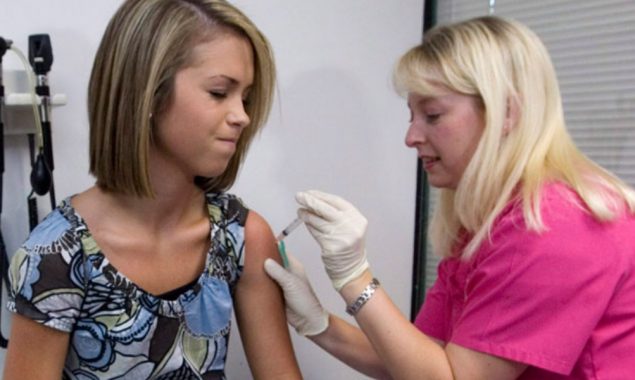Study: sounds help pedestrians to detect the electric cars
According to a study presented at the Acoustical Society of America me...

A new study shows the first generation of HPV vaccine recipients is substantially less likely to get or die from cervical cancer than women just a few years older.
The human papillomavirus, or HPV, is responsible for nearly all cases of cervical cancer, for which vaccination has been available since 2006.
According to research in JAMA Pediatrics, cervical cancer death and cases have decreased considerably among 14- to 24-year-old women, in comparison to those women between 25 and 39 years old who did not receive the vaccine as a child.
Dr. Kathleen Moore, an associate professor and gynecologic cancer specialist with the University of Oklahoma Stephenson Cancer Center in Oklahoma City said “The data is beautiful because it shows us what to expect when we get everyone vaccinated. It’s proof that it works,”
Researchers led by Tara Tabibi of Saint Louis University School of Medicine and Dr. Justin Barnes of Washington University School of Medicine in St. Louis examined cervical cancer cases and deaths from 2001 to 2005, the years immediately preceding the vaccine’s approval — with those from 2010 to 2017.
Researchers found that cervical cancer mortality has decreased by 43% and cases have decreased by 38% in females aged 15 to 24 years since the vaccination was introduced.
Read more: Study: shows a link between the psychiatric disorders and type 2 diabetes
In comparison, cervical cancer death rises by around 4% on average in women aged 25 to 29 but decreases by about 5% in women in their 30s.
Cases declined by 16% among those aged 25 to 29, and by 8% among those aged 30.
According to cancer experts, cervical cancer cases and deaths are expected to fall in those slightly older age groups as the girls who have been vaccinated against HPV get older.
Saslow said “That’s why the American Cancer Society and the American Academy of Pediatrics have been promoting an earlier schedule for the HPV vaccine, with kids receiving the two-dose series at 9 and 10”
He also said that “Then when they come back at 11, they have HPV done and it’s more effective when you give it earlier,”
Catch all the Health News, Breaking News Event and Latest News Updates on The BOL News
Download The BOL News App to get the Daily News Update & Follow us on Google News.